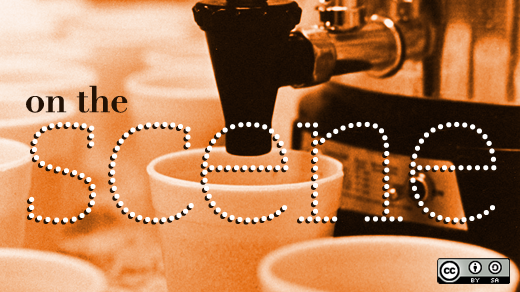Deb Nicholson is worried about the future of our data.
They're being stockpiled by organizations whose ability to protect them is diminishing, but whose ability to keep users from accessing or transporting them is increasing. Bit by bit, these data are being centralized--gathered in large repositories outside users' control and sequestered there when competing products or services can't access or read them.
Nicholson, community outreach director for Open Invention Network and community manager for the MediaGoblin project, says movement in the opposite direction--toward decentralization--is necessary for a more open, safe, and competitive future. And in "We Are Legion: Decentralizing the Web," a presentation she delivered today at SouthEast LinuxFest in Charlotte, NC, Nicholson explained how open source projects are at the forefront of attempts to realize this future.
"I'd like to see more people working on decentralized services," Nicholson said.
Centralization's consequences are myriad, Nicholson noted. It can lead to monopoly, as firms with singular control over key pieces of software or data sets can almost completely control how those resources are used. This can lead, in turn, to censorship when entities with complete control of an infrastructure define precisely which kinds of communication are permissible via that infrastructure (Nicholson reminded listeners that the U.S. Postal Service refuses to transport "obscene" materials, though the definition of "obscene" has shifted repeatedly throughout the 20th and 21st centuries). And centralization can accelerate media consolidation, homogenizing the media landscape and narrowing the number of perspectives available to consumers and citizens.
The Web, a platform with the potential for radical decentralization, has not been immune from these trends, Nicholson said. More and more, companies tend to act as sole proprietors of users' data--data stored in proprietary formats that can't be utilized by other services. This might ensure that these companies retain their users (as Nicholson said, even if someone could export her Facebook data, where would she go with it?), but it also makes them targets. As LinkedIn users realized earlier this week sites that act as information silos often find themselves targets of theft. And even if a company manages to keep users' data secure, there's no reason to believe those same companies will respect users' privacy.
Luckily, Nicholson said, free and open source software projects are working to counter these trends. Nicholson named Status.net, the Diaspora Project, Friendica, buddycloud, and MediaGoblin as projects aimed at returning control over data to the users who create and own it. These services keep data spread across multiple locations, ensuring that communication between those locations is simple and transparent. Decentralization involves the proliferation of many freely interoperating services rather than the consolidation of monolithic storehouses. Distributing data makes them less susceptible to complete control or censorship.
However, barriers to adoption remain. Searching for common groups, terms, and users across various decentralized services is difficult. Spam is rampant (as it turns, out, Nicholson admitted, controlling spam is much easier when information about spammers can be stored and updated in a central location). And decentralized services could be more aesthetically inviting or intuitive; their respective learning curves are high. Nicholson said simplicity and ease of use should be these projects' primary concern.
"Just click a button," Nicholson said. "It's going to have to be really easy for anyone without technical knowledge."
Nicholson closed her talk with visions of a future in which Web search, city traffic data, and even health care data have been decentralized.
It's a future attendees at SouthEast LinuxFest could help bring about.




Comments are closed.